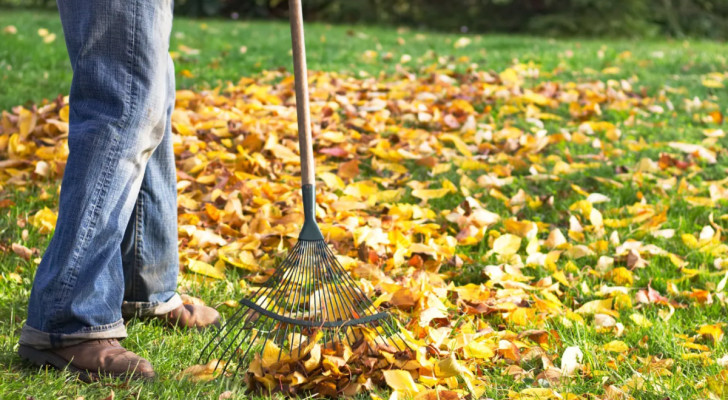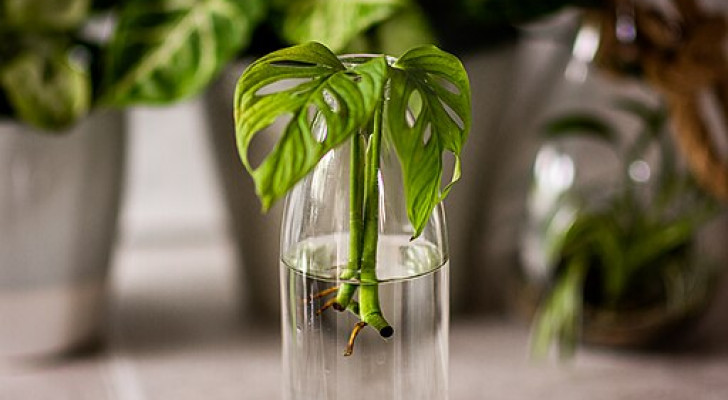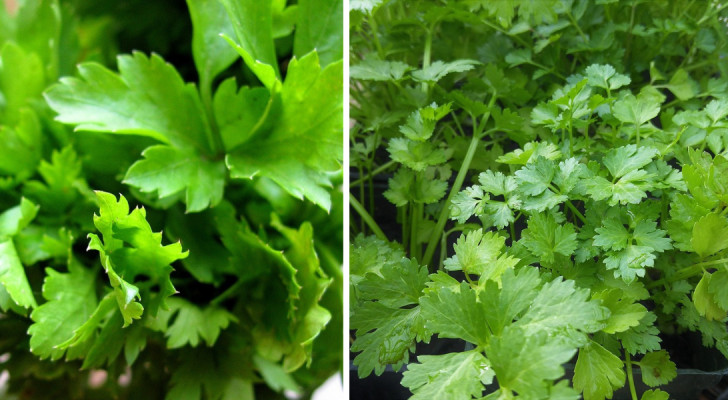Should you remove ivy from your fruit trees? Let's find out how to manage this plant
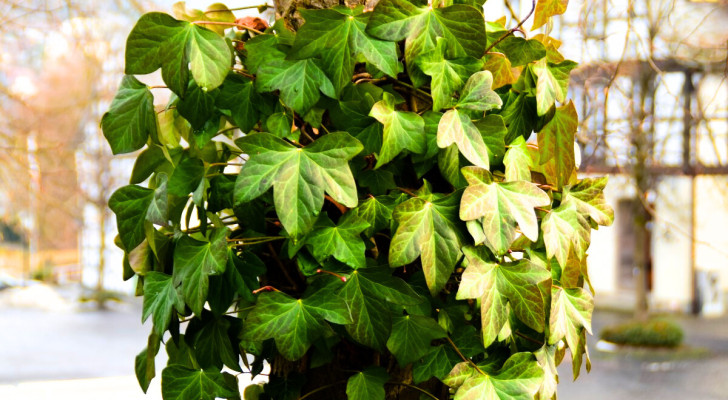
Ivy is one of the most widespread, least-liked plants in the world. Ivy is an extremely robust climber, with rapid growth, capable of clinging to any surface - especially the bark on tree trunks. And in the case of growing on fruit trees, ivy is often considered a type of "parasite" that steals resources and must be completely eliminated. But is this really the case?
Ivy: a very strong climbing plant
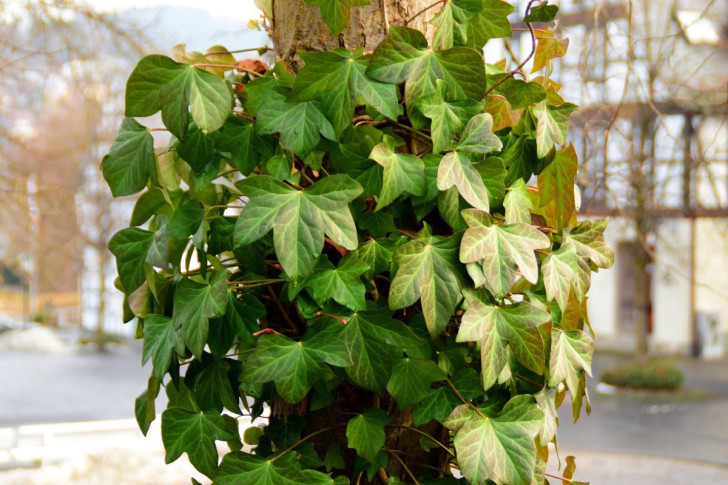
Pxhere
Ivy (Hedera helix, is the most commonly-found variety in Europe) is a climber/creeper with woody stems and can grow up the trunk of a tree and spread very quickly. Ivy can cover large surfaces in a very short time - even at ground level - and if left undisturbed, it can create very dense cover (in which animals will often shelter).
To spread across surfaces, ivy uses two mechanisms: anchor points and sunlight-oriented growth. In fact, ivy is capable of using the knots in branches as "hooks" to attach itself to the bark of the trees. Ivy also secrets a viscous substance improves its adhesion to wood. When firmly anchored, the ivy grows towards the sunlight.
It is believed that ivy steals nutrients from the trees on which it grows, and that it "invites" unwanted animals to the garden - but this is not necessarily the case. In fact, following certain precautions, ivy on fruit trees can even be beneficial. Ivy:
- doesn't extract nutrients from the bark its climbing on, so it doesn't damage the tree itself;
- it cannot even extract water from the bark, nor does it compete for the same nutrients as the fruit tree;
- its roots are superficial and can coexist with the much deeper root systems of the fruit trees;
- dead ivy leaves that fall to the ground become a natural fertilizer;
- it can act as an insulator and protect the host tree against the cold;
- its toxicity keeps some grazing animals at bay;
- its flowers attract pollinating insects, which are essential for fruit trees.
How to manage ivy on fruit trees
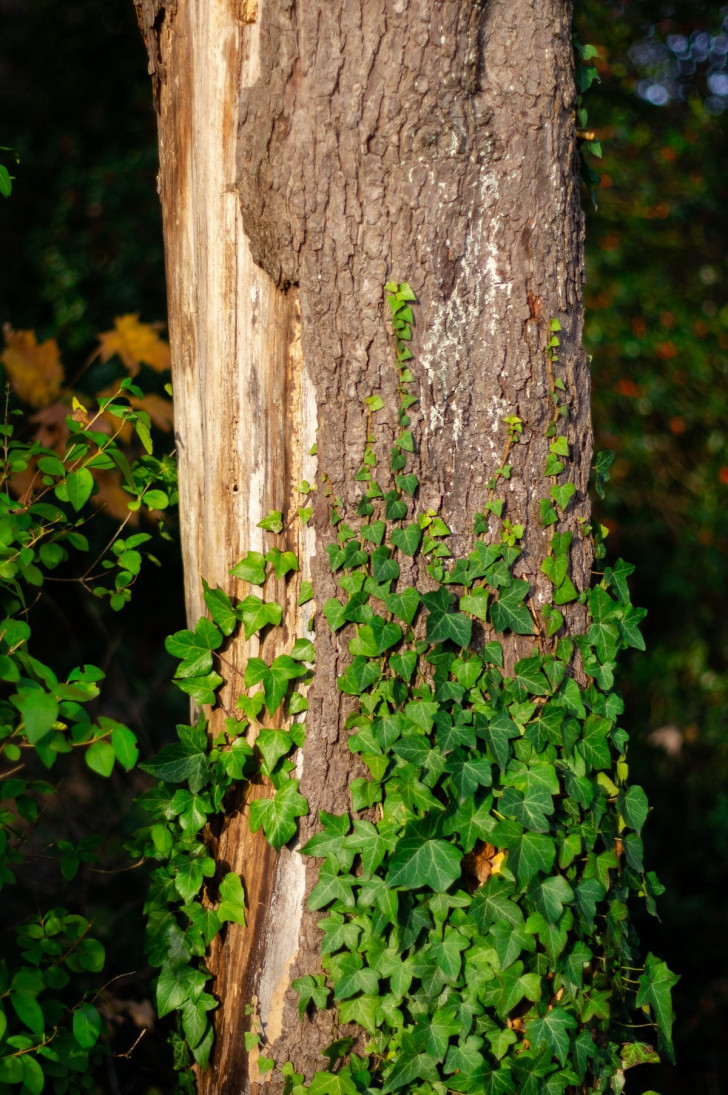
Pxhere
Of course, ivy needs to be managed to remain beneficial to host fruit trees. Left to grow rampently, ivy will block out the sunlight and end up suffocating the host fruit trees. Furthermore, it can weigh down the host's foliage and break branches.
In short, whilst ivy can be beneficial, it must be managed.
Ivy must be cut before it reaches the host's branches. It can be left to grow on the fruit tree's trunk, providing the above-mentioned benefits. Considering that fruit trees require periodic inspections and checks, it shouldn't be too onerous to add ivy maintenance to your gardening chores. It must be remembered, however, that they ivy grows really quickly, so it is best never wait too long before pruning it back.
As the saying goes, "everything in moderation" - and this includes ivy too!

